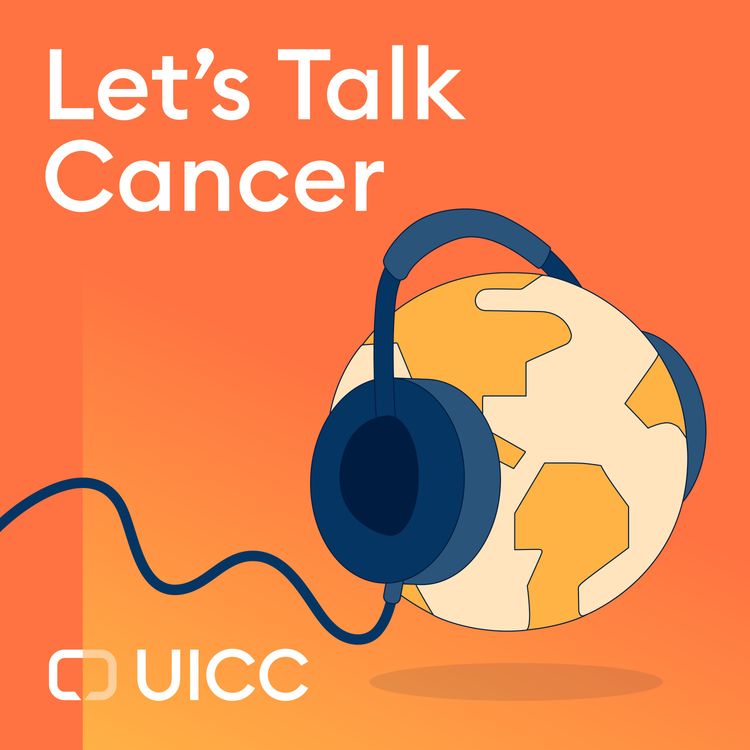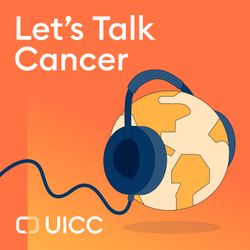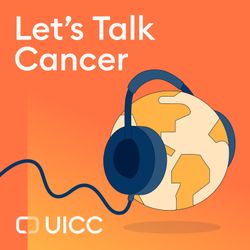Share

Let's Talk Cancer
Protecting youth from tobacco industry interference
Ep. 33
•
Around 8 million people die because of tobacco consumption every single year, leading the tobacco industry to search for new users. Increasingly, it is targeting youth in the hope of hooking a new generation to tobacco products and creating lifelong consumers. To protect youth from tobacco industry interference, we must ensure that their perspectives are heard.
In this episode of Let’s Talk Cancer, Cary Adams, CEO of UICC speaks with Agamroop Kaur, National Youth Advocate of the Year of the Campaign for Tobacco-Free Kids and David Planas Maluenda, global health policymaker at the Spanish Association Against Cancer in Zaragoza and Youth Ambassador Against Cancer at the European Cancer Leagues.
More episodes
View all episodes

37. World Cancer Day 2025: People Centred Cancer Care with Karen Nakawala
23:39||Ep. 37Podcast “Let’s Talk Cancer” – People-centred are and the power of the patient voiceKaren Nakawala speaks of her experience with cervical cancer, the foundation of Teal Sisters, a UICC member organisation, and the benefits of a people-centred approach to healthcare delivery.
36. Rewriting Cancer: stories of resilience and change in cancer care
20:46||Ep. 36Ahead of World Cancer Day on 4 February and the new campaign, ‘United by Unique,’ focusing on people-centred care, this episode of Let’s Talk Cancer highlights "Rewriting Cancer," a series of short films produced by BBC StoryWorks Commercial Productions for UICC. These films feature the experiences of people with cancer, their loved ones, caregivers, medical professionals, and volunteers worldwide. The series aims to dispel myths and highlight advancements in cancer prevention, diagnosis, treatment, and supportive care. With Gemma Jennings, Vice President at BBC StoryWorks, and James Waddington from the American Cancer Society, a prostate cancer survivor and advocate for early screening.
Antimicrobial resistance (AMR): a rising threat to cancer treatment
26:26|Antimicrobial resistance, also known as AMR or drug resistance, is among the top 10 public health threats facing humanity, according to the World Health Organization.Antimicrobial resistance happens when the medicines, including antiotics, are no longer able to fight infections from bacteria, fungi, viruses and parasites.For cancer patients, the situation is particularly concerning. They have particularly weak immune systems due to the cancer treatment, such as chemotherapy, they are receiving and are therefore more prone to infections. As many as 1 in 5 cancer patients undergoing treatment are hospitalised due to infection. Antibiotics are critical to treat them.Moreover, the growth of drug-resistant bacteria is undermining the key advances that have been made in surgery, radiotherapy and immunotherapies, as treatment is delayed or stopped to treat rising infections.Malin Grape is Sweden’s – and the world’s – first Ambassador on AMR, working to counteract AMR and its consequences in the EU and internationally. She joins us for this episode of “Let’s Talk Cancer” ahead of the upcoming UN high-level meeting in September on AMR.
34. The future of oncology: new technologies and tailored treatment
31:04||Ep. 34The past few decades have witnessed significant strides in how cancer is detected, diagnosed and treated, leading to a noticeable decrease in mortality rates in many countries.These improvements are largely due to new discoveries about why and how cancer develops, generating new ways of treating cancer to help people live longer, healthier lives.From immunotherapy and AI to cancer vaccines - Cary Adams, CEO of UICC speaks with Dr Laszlo Radvanyi, President and Scientific Director of the Ontario Institute for Cancer Research, an internationally renowned research institute located in Toronto, Canada, who is at the forefront of some of the most ground-breaking work in cancer research.
32. The King of Chemo: the luckiest unlucky man
24:57||Ep. 32Diagnosed with Stage 3 brain cancer and given a few years to live, Iain Ward has made it his life goal to break the world record for the most money raised for charity running a marathon. Listen to his unique story of purpose and perseverance, as we discuss everything from his innovative use of social media as a fundraising tool, to the importance of mental health and cancer.
31. Understanding the latest global trends in cancer control
22:33||Ep. 31WHO has released new global cancer figures, showing stark inequities in preventing and treating cancer, with rising numbers of cases and cancer-related deaths expected to affect the countries least equipped to cope.In this episode of "Let's Talk Cancer", Isabelle Soerjomataram, researcher and epidemiologist at the International Agency for Research on Cancer, WHO's cancer branch, analyses and interprets these global cancer trends.
30. The power of patient voices to transform cancer care
27:54||Ep. 30James Auste's experience with a brain tumour and inadequate treatment options in the Philippines inspired the creation of Cancer Warriors Philippines to support those unable to afford care. As CEO of the organisaiton, his mother Carmen Auste continues to advocate for equitable cancer treatment and systemic health reforms in the country.In this episode, Carmen Auste discusses her leadership in cancer advocacy, exploring ways to empower people with lived experience and influence healthcare policy by steering policymakers toward prioritising cancer care.
29. Love and loss: how to support those with terminal cancer and their families?
20:08||Ep. 29When Soma Ghosh was diagnosed with cancer in August 2016, she was 41 years old and given just 6 months to live by one of India’s leading oncologists. Her family moved countries - from India to the United States in search of the best treatment in the world, consulted several doctors, and changed schools and jobs. Soma passed away in December last year, 6 and a half years later.Sukanti Ghosh, her husband, joins us today to discuss this chapter of their lives - his role as a caregiver, the toll taken by cancer on their family, the critical importance of a supportive caregiving framework of employers, family and friends - and the fact that he believes there is a role for him to play in celebrating Soma’s cancer journey.